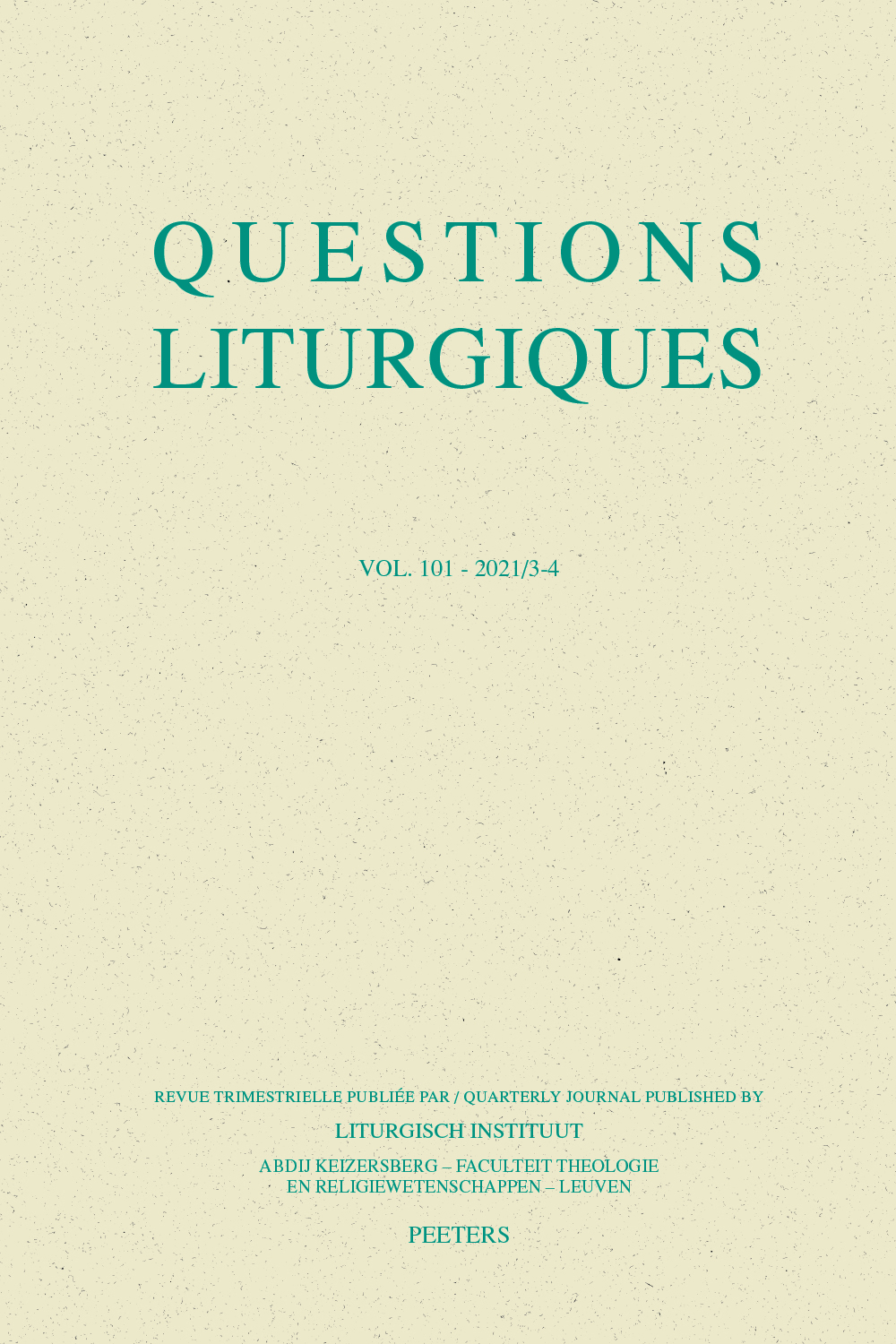next article in this issue  |

Preview first page |
Document Details : Title: Die Ehe als Prozess? Subtitle: Eine sakramententheologische Problemskizze Author(s): KNIEPS-PORT LE ROI, Thomas Journal: Questions Liturgiques/Studies in Liturgy Volume: 89 Issue: 4 Date: 2008 Pages: 219-237 DOI: 10.2143/QL.89.4.2036184 Abstract : The traditional theology of the marital sacrament does not pay much attention to the relational dynamic and growth along the spouses’ shared trajectory, both before and after the entry into formal marriage. Contemporary couples, however, increasingly realize and experience that enduring relationships grow over time, pass through various processes and stages, and therefore are prone to fragility and disruption. This causes problems in the pastoral field where pastors are confronted both with the wide-spread phenomenon of prenuptial cohabitation and with couples whose relationship break up over time. The article explores the canonical and theological grounds on which the static and instantaneous view of the marital sacrament is based. While canon law focuses on the moment of consent (both in its juridical and liturgical aspects) as the constitutive element in realizing the marital sacrament, traditional sacramental theology has not yet sufficiently developed the concept of a 'permanent sacrament'. Finally, the article reviews a number of more recent approaches in the theology of marriage in which, albeit in a limited or incomplete way, the developmental character of enduring partner relations is taken into consideration. La théologie traditionnelle du mariage-sacrement n’attache pas beaucoup d’importance à la dynamique relationnelle et la croissance du couple tout au long de sa trajectoire partagée, aussi bien avant qu’après la formalisation du mariage. Les couples contemporains, cependant, réalisent et éprouvent de plus en plus que les relations durables se forment avec et à travers le temps, traversent plusieurs étapes et phases, et sont souvent sujettes à des crises, des ruptures ou d’autres situations de fragilité. Ceci engendre des problèmes dans le domaine pastoral où les pasteurs sont confrontés, d’un côté, au phénomène de plus en plus répandu de la cohabitation prénuptiale et, de l’autre côté, à un nombre croissant de divorces. L’article explore les raisons canoniques et théologiques sur lesquelles se base la vision statique et instantanée du mariage-sacrement. Tandis que la loi canonique se concentre sur le moment du consentement (aussi bien juridique que liturgique) comme étant l’élément constitutif du mariage-sacrement, la théologie sacramentaire traditionnelle n’a pas encore suffisamment développé le concept d’un «sacrement permanent». Pour conclure, l’article passe en revue un certain nombre d’approches plus récentes dans la théologie du mariage qui prennent en considération – tant bien que mal – le côté «développemental» et dynamiques de la relation conjugale. |
|


